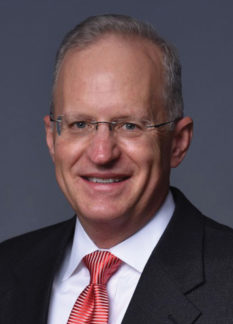Landowners, Legacies and Legalities
What Forest Landowners Need to Know About Estate Planning and Forest Preservation from a Legal Perspective

As a forest landowner, one of your most important goals is to manage your forest land to maximize its benefits to you, your family, and forest welfare in general. What, in a nutshell, do you need to keep in mind from a legal planning perspective? Generally, there are three (3) steps that must be considered:
1. Develop a family/forestry plan;
2. Contribute forest land to a limited liability company (LLC) or a limited partnership (LP) (both entities hereinafter referred to as “LLC”) in return for an ownership interest in the LLC (the “membership interest”); and
3. Contribute forest landowner’s LLC membership interests to Income Only Trusts created by the landowner to protect forest land from creditors (including, but not limited to, long-term healthcare costs, i.e., nursing home costs). The use of multi-generation trusts for transition to the landowner’s descendants also protects the forest land from their descendants’ creditors (including, but not limited to, former spouses, federal estate tax, Pennsylvania inheritance tax, and other unintended creditors). With such planning, Pennsylvania forest land can be protected for up to 360 years (the current limit on perpetuities in Pennsylvania for this type of trust planning).
Creating an LLC
After developing a forestry plan, forest landowners should contribute their forest land to an LLC. Forest landowners need to advise their insurance agents of their contribution of forest land to an LLC to ensure that adequate and appropriate insurance is in place for the LLC and general liability insurance is in place to cover claims against the individual.
LLC forest land ownership provides centralized management, avoids fractionalization of the forest land, and limits the liability of the equity owners if a catastrophic event occurs on the forest land.
LLCs are governed by a central agreement called the “Operating Agreement.” Generally, the Operating Agreement will provide for decision making and management by a majority vote. In contrast, if forest land is merely inherited by three, four, or five children as tenants in common, any decisions with regard to the management of the forest land will likely be more problematic as each child has an undivided interest in the forest land thereby allowing each to have certain rights with respect to the land independent of one another. Absent unanimous consent of all of the children, the children may encounter difficulties selling, leasing, or entering into other agreements affecting the forest land.
Because the forest land is owned by a single entity, the forest land is not fractionalized into smaller units. The LLC ownership may be handed down through generations (either outright or in trust), but the LLC never files a new deed for the forest land. Thus, the memberships interest in the LLC are fractionalized, but the actual forest land ownership is maintained by a single entity (the LLC).
The Role of an Income Only Trust
The last and most important step for the landowner is to protect the forest land LLC from their creditors and the creditors of their descendants. The most likely (but not the only) financial threat to senior generation ownership of forest land is future long-term healthcare. With proper planning before a long-term healthcare event occurs (or in some cases, even after the need for long-term healthcare arises), use of an Income Only Trust will help shield the forest land from long-term healthcare costs. The landowner can continue their historical use of the property and can receive all of the income generated by the Income Only Trust in accordance with applicable law.
The best way to transfer forest land LLC interests is to use multiple generation trusts created by the landowner as part of their estate plan for the benefit of their descendants. The forest land LLC membership interest owned by such family generation trusts will be protected from descendants’ creditors, including, but not limited to:
1. Former spouses (if descendant gets divorced);
2. Pennsylvania inheritance tax and federal estate tax (upon descendants’ death);
3. Bankruptcy creditors of the descendant;
4. Long-term care costs of the descendant; and
5. Other (though not all) unanticipated creditors of the descendant.
Summary
To protect and preserve Pennsylvania forest land and to avoid continued fractionalization of forest land, forest landowners should meet with an experienced estate and business succession planning attorney to develop an entity structure and engage in appropriate trust planning to avoid fractionalization and/or forced sales of forest land resulting from improperly planned estates.
Legal Advice Disclaimer: The content of this website is provided for general information purposes only. It should not be used as a substitute for consulting an attorney for legal advice regarding the reader's own affairs. Knox McLaughlin Gornall & Sennett, P.C. is not responsible for the content provided on any third-party website which may be accessed via links provided by this site.


